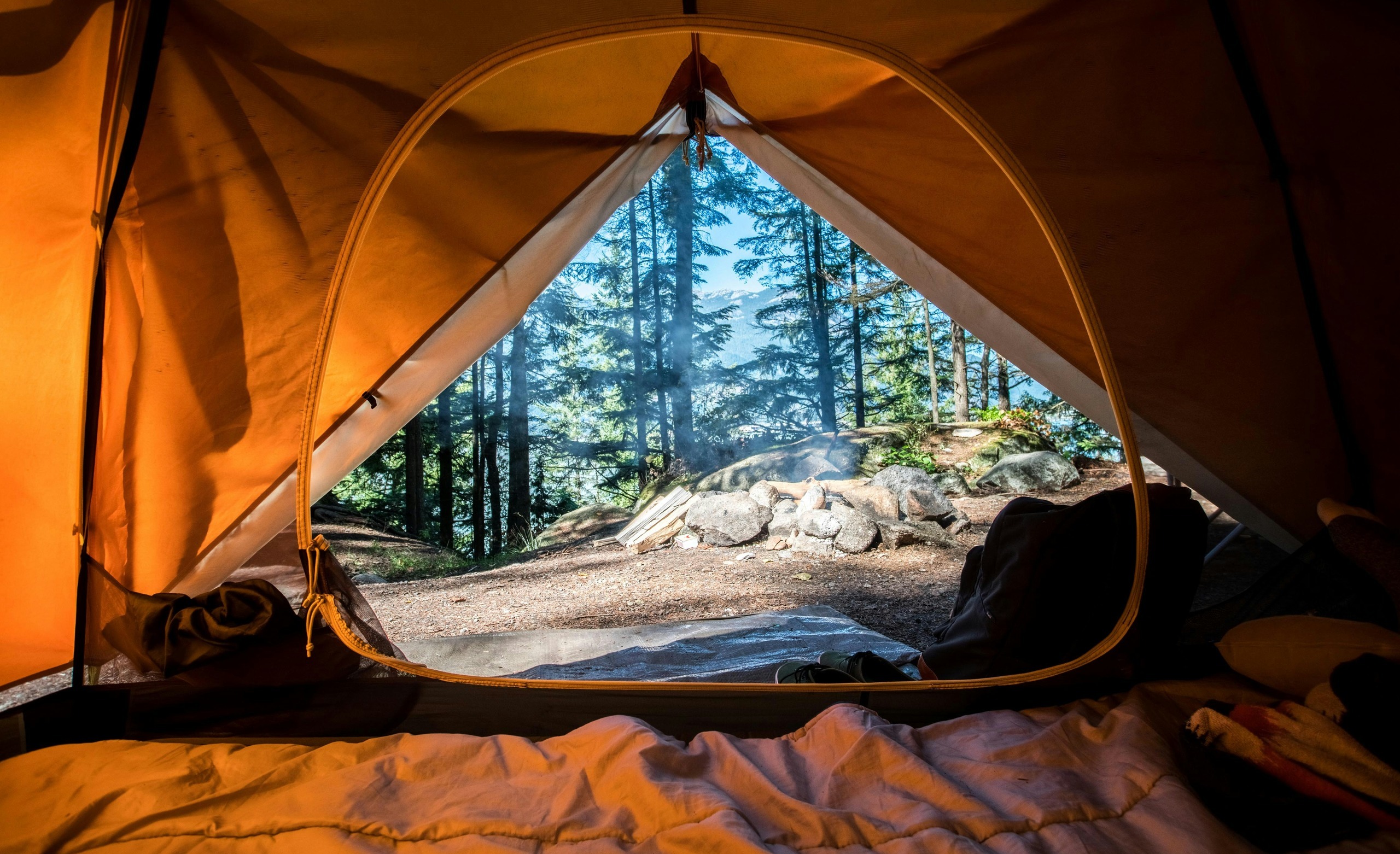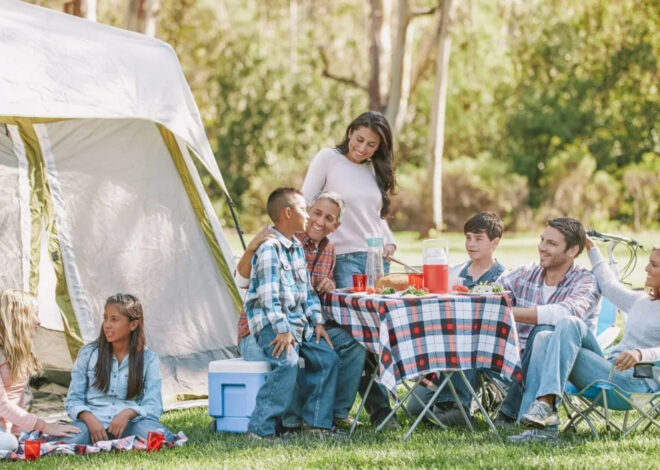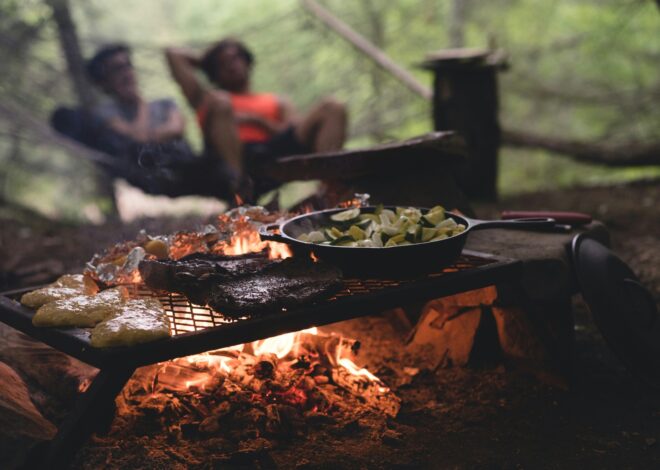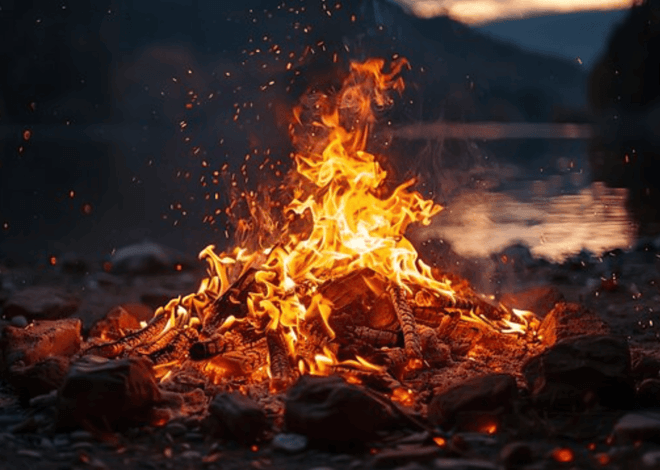
Camping Tips For Beginners
Welcome to our guide on camping tips for beginners. Picture this: a crackling campfire under a starlit sky, the scent of pine trees wafting through the air, and the sound of nature serenading you as you unwind from daily life. Camping is not just an escape; it’s an adventure waiting to unfold.
Whether you’re looking to reconnect with family, bond with friends, or find solitude in nature’s embrace, camping offers something for everyone. But if you’re new to this outdoor experience, it can feel intimidating at first.
Fear not! This guide filled with essential camping tips for beginners will help pave your way into the great outdoors. From choosing the right gear to setting up camp like a pro, we’ve got you covered every step of the way. So grab your backpack and let’s dive into what makes camping such a beloved pastime!
What is Camping and Why Should You Try It?
Camping is an immersive experience that allows you to reconnect with nature. It involves setting up temporary shelter, usually in the wilderness, and enjoying the great outdoors. Why should you give it a try? For starters, camping promotes relaxation.
Away from the daily grind of work and technology, your mind can unwind amid trees and fresh air. Additionally, it’s a fantastic way to bond with friends or family. Sharing stories by a campfire creates lasting memories that are hard to replicate elsewhere.
You also get to explore new environments. Each campsite offers unique views—whether it’s mountains, lakes or forests—inviting adventure at every turn. Plus, camping encourages physical activity through hiking, fishing or even just exploring your surroundings. Embrace this opportunity for both fun and fitness while soaking in all that nature has to offer.
Essential Gear for a Camping Trip
When gearing up for your first camping adventure, the right equipment can make all the difference. Start with a reliable tent that suits your group size and weather conditions. It’s your home away from home. Next, invest in a quality sleeping bag rated for the temperatures you’ll encounter.
Comfort is key to enjoying nature’s beauty. Don’t forget about cooking essentials. A portable stove or grill will help you whip up delicious meals outdoors. Bring along sturdy cookware and utensils too. Hydration is crucial, so pack a durable water bottle or hydration system.
Staying hydrated keeps energy levels high during hikes and activities. Safety gear like a first-aid kit should always be on hand. Being prepared ensures peace of mind as you explore the great outdoors.
Choosing the Right Campsite
Choosing the right campsite can make or break your camping experience. Start by considering accessibility. Look for sites that are easy to reach, especially if you’re a beginner. Next, think about the amenities available. Some campsites offer restrooms and running water, while others may be more rustic.
Decide what comforts you need to enjoy your trip. The scenery is another crucial factor. Do you prefer lakeside views or dense forests? Each setting offers its unique charm and activities. Also, pay attention to regulations regarding campfires and wildlife in the area.
Understanding these guidelines will help keep your adventure safe and enjoyable. Consider your fellow campers’ needs when selecting a site within shared spaces. Respecting boundaries enhances everyone’s experience in nature’s embrace.
Setting Up Camp: Tips and Tricks
Setting up camp can be both exciting and a little daunting. Start by finding a flat, dry area for your tent. This will make sleeping comfortable and help keep moisture at bay. Once you’ve chosen your spot, clear away any debris like rocks or sticks.
A clean campsite is not only safer but also more pleasant to hang out in. When pitching your tent, always check the weather forecast first. If rain is expected, orient the entrance away from the wind to prevent water from blowing inside. Use stakes properly to secure your tent against winds.
When it’s windy, consider using guylines for added stability. Designate specific areas for cooking and relaxing. Keeping these zones separate minimizes messes and enhances safety while you enjoy nature’s beauty around you.
Safety Precautions to Keep in Mind
Safety should always be a priority when camping. Being outdoors comes with its own set of risks, so preparation is key. Always inform someone about your camping plans. Share your itinerary and expected return time. This way, if anything goes wrong, help can be dispatched quickly.
Pack a well-stocked first aid kit. Include essentials like band-aids, antiseptics, and any personal medications you might need. Accidents happen; being ready makes a difference. Familiarize yourself with the area’s wildlife. Learn how to store food properly to avoid attracting animals.
Securing food in bear-proof containers or hanging it high in trees helps keep unwanted visitors at bay. Stay aware of weather conditions too. Sudden changes can turn an enjoyable trip into a hazardous one quickly. Check forecasts regularly and know when to seek shelter from storms or extreme temperatures.
Practice fire safety diligently. Keep fires contained within designated areas and fully extinguish them before sleeping or leaving camp.
Meal Planning and Cooking in the Great Outdoors
Meal planning for your camping adventure can be a fun challenge. Start by thinking about simple, nutritious meals that require minimal ingredients. Opt for items like pasta, canned beans, or pre-cut vegetables to save time and effort at the campsite.
Pack lightweight cooking gear. A portable stove or campfire grill will work wonders for preparing hot meals. Don’t forget essential utensils—think pots, spatulas, and a good old-fashioned cutting board. Consider prepping some food at home. Marinated meats or chopped veggies can make meal prep on-site much easier.
Snacks are crucial too; trail mix or energy bars keep you fueled during hikes. When it comes to cooking outdoors, embrace improvisation! Nature offers its own unique flavors—grill veggies over an open flame or try foil packet recipes that allow for easy clean-up while maximizing taste.
Activities to Enhance Your Camping Experience
Camping is more than just setting up a tent and enjoying nature. It’s about creating unforgettable memories through engaging activities. Hiking is a classic choice. Explore nearby trails and soak in breathtaking views while getting some exercise.
It’s also an excellent way to connect with the environment around you. Stargazing can transform your campsite into a celestial wonderland. Lie back, gaze at the stars, and learn to identify constellations. The night sky offers a mesmerizing escape from city lights.
Don’t forget about campfire storytelling! Gather around the fire for tales of adventure or local legends. This fosters camaraderie and enhances that cozy camping atmosphere. Try your hand at fishing if you’re near water. Bringing home dinner adds excitement to your trip while honing valuable skills.
Enjoy games like frisbee or cards during downtime between adventures. These simple moments often become cherished highlights of any camping experience.
Staying Clean and Hygienic While Camping
Camping in the great outdoors doesn’t mean sacrificing cleanliness. It’s essential to maintain hygiene for a comfortable experience. Start with basic supplies: biodegradable soap, hand sanitizer, and a quick-dry towel. These items are lightweight and can fit into any backpack without much hassle.
When washing up, choose natural water sources wisely. Always wash at least 200 feet away from lakes or rivers to protect local wildlife and ecosystems. Use soap sparingly, as it can harm aquatic life. Toothbrushes can be bulky; consider alternatives like bamboo toothbrushes that lessen environmental impact.
After meals, keep your cooking area clean by disposing of food scraps properly and wiping surfaces down promptly. Don’t forget personal care! Bring along sanitary wipes for freshening up after hiking or using the restroom facilities. A little effort goes a long way in ensuring you feel good while enjoying nature’s beauty.
How to Leave No Trace while Camping
Respecting nature is crucial when camping. One of the best ways to do this is by practicing Leave No Trace principles. Always stick to established trails and campsites. This helps minimize your impact on the environment. Avoid creating new paths, as they can lead to erosion and damage local flora.
When it comes to waste, pack out what you pack in. Bring garbage bags for trash and even leftover food scraps. If you’re camping near water sources, be extra careful not to pollute them. Use biodegradable soap for washing dishes or yourself, if necessary. Always choose a spot at least 200 feet away from any water source for hygiene activities.
Fire safety also falls under leaving no trace. Use a portable stove instead of building a fire ring unless it’s permitted and necessary. By following these guidelines, you help preserve the beauty of our natural spaces for future campers to enjoy.
Common Mistakes to Avoid as a Beginner Camper
One common mistake beginner campers make is overpacking. It’s tempting to bring everything you think you might need, but this can lead to a heavy backpack and unnecessary stress. Focus on essentials instead. Another pitfall is not checking the weather beforehand.
Being unprepared for rain or extreme temperatures can turn a fun trip into an uncomfortable ordeal. Always keep an eye on the forecast leading up to your departure. Ignoring campsite rules is also frequent among newcomers. Each site has specific guidelines regarding fires, wildlife interactions, and waste disposal. Familiarizing yourself with these rules ensures a safer experience.
Many beginners underestimate the importance of meal planning. Relying on last-minute decisions can result in unhealthy choices or inadequate supplies. Plan simple meals that don’t require extensive cooking gear, making dining enjoyable rather than stressful during your outdoor adventure.
Conclusion: Embracing the Great Outdoors through Camping
Camping offers a unique opportunity to connect with nature and escape the hustle of everyday life. For beginners, it might feel daunting at first, but with the right tips and preparation, you can embrace this adventure confidently.
From understanding what camping truly is to selecting essential gear and choosing the perfect campsite, each aspect plays a significant role in creating an enjoyable experience. Setting up camp becomes less intimidating when armed with effective strategies and safety precautions.
Meal planning adds another layer of excitement as you explore cooking outdoors. Engaging in activities boosts your overall enjoyment while keeping cleanliness at the forefront ensures a pleasant environment for all campers. Additionally, practicing Leave No Trace principles helps preserve nature’s beauty for future generations.
Avoiding common beginner mistakes will only enhance your journey into the wild. Embracing these experiences creates lasting memories that enrich your appreciation for nature’s wonders. So gather your gear, choose a destination that excites you, and hit the trails—adventure awaits!



